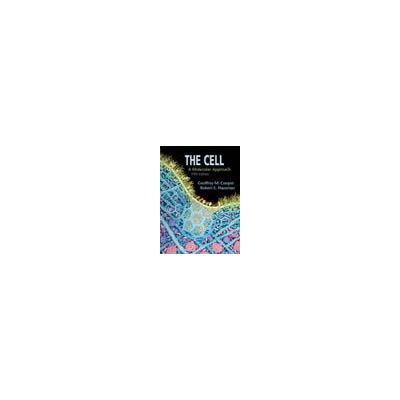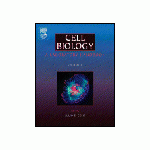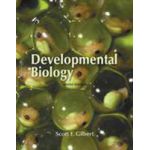The Cell: A Molecular Approach

Preț: 420,00 lei
Disponibilitate: în stoc la furnizor
Autor: Geoffrey M. Cooper and Robert E. Hausman
ISBN: 978-0-87893-300-6
Editura: Sinauer & Associates
Anul publicarii: 2009
Ediția: 5
Pagini: 771
Categoria: HISTOLOGY, CELL & MOLECULAR BIOLOGY
DESCRIERE
The Cell presents current comprehensive science in a readable and cohesive text that students can master in the course of one semester. This new edition retains the overall organization, themes, and special features of the Fourth Edition, including Key Experiment and Molecular Medicine essays, chapter sidebars that highlight areas of interest and clinical applications, and end-of-chapter questions with answers at the back of the book.
The Fifth Edition has been updated throughout to reflect major advances since publication of the Fourth Edition in 2006, including:
* Advances in understanding gene regulation by microRNAs
* Histones and epigenetic inheritance
* Identification of human disease susceptibility genes by genome-wide association scans
* Protein import into mitochondria
* Induced pluripotent stem cells
* Role of autophagy in programmed cell death
* Genomic analysis of mutations in human cancers
* New Key Experiments: RNA Interference (Chapter 4) and G Protein-Coupled Receptors and Odor Detection (Chapter 15)
Table of Contents
PART I. INTRODUCTION
1. An Overview of Cells and Cell Research
* The Origin and Evolution of Cells
* Cells as Experimental Models
* Tools of Cell Biology
* Key Experiment: Animal Cell Culture
* Molecular Medicine: Viruses and Cancer
2. The Composition of Cells
* The Molecules of Cells
* Cell Membranes
* Proteomics: Large-Scale Analysis of Cell Proteins
* Key Experiment: The Folding of Polypeptide Chains
* Key Experiment: The Structure of Cell Membranes
3. Cell Metabolism
* The Central Role of Enzymes as Biological Catalysts
* Metabolic Energy
* The Biosynthesis of Cell Constituents
* Molecular Medicine: Phenylketonuria
* Key Experiment: Antimetabolites and Chemotherapy
4. Fundamentals of Molecular Biology
* Heredity, Genes, and DNA
* Expression of Genetic Information
* Recombinant DNA
* Detection of Nucleic Acids and Proteins
* Gene Function in Eukaryotes
* Key Experiment: The DNA Provirus Hypothesis
* Key Experiment: RNA Interference
PART II. THE FLOW OF GENETIC INFORMATION
5. The Organization and Sequences of Cellular Genomes
* The Complexity of Eukaryotic Genomes
* Chromosomes and Chromatin
* The Sequences of Complete Genomes
* Bioinformatics and Systems Biology
* Key Experiment: The Discovery of Introns
* Key Experiment: The Human Genome
6. Replication, Maintenance, and Rearrangements of Genomic DNA
* DNA Replication
* DNA Repair
* Recombination between Homologous DNA Sequences
* DNA Rearrangements
* Key Experiment: Rearrangement of Immunoglobulin Genes
* Molecular Medicine: Colon Cancer and DNA Repair
7. RNA Synthesis and Processing
* Transcription in Prokaryotes
* Eukaryotic RNA Polymerases and General Transcription Factors
* Requlation of Transcription in Eukaryotes
* RNA Processing and Turnover
* Key Experiment: Isolation of a Eukaryotic Transcription Factor
* Key Experiment: The Discovery of snRNPs
8. Protein Synthesis, Processing, and Regulation
* Translation of mRNA
* Protein Folding and Processing
* Regulation of Protein Function
* Protein Degradation
* Key Experiment: Catalytic Role of Ribosomal RNA
* Key Experiment: The Discovery of Protein-Tyrosine Kinases
PART III. CELL STRUCTURE AND FUNCTION
9. The Nucleus
* The Nuclear Envelope and Traffic between the Nucleus and the Cytoplasm
* Internal Organization of the Nucleus
* The Nucleolus and rRNA Processing
* Molecular Medicine: Nuclear Lamina Diseases
* Key Experiment: Identification of Nuclear Localization Signals
10. Protein Sorting and Transport: The Endoplasmic Reticulum, Golgi Apparatus, and Lysosomes
* The Endoplasmic Reticulum
* The Golgi Apparatus
* The Mechanism of Vesicular Transport
* Lysosomes
* Key Experiment: The Signal Hypothesis
* Molecular Medicine: Gaucher Disease
11. Bioenergetics and Metabolism: Mitochondria, Chloroplasts, and Peroxisomes
* Mitochondria
* The Mechanism of Oxidative Phosphorylation
* Chloroplasts and Other Plastids
* Photosynthesis
* Peroxisomes
* Molecular Medicine: Diseases of Mitochondria: Leber’s Hereditary Optic Neuropathy
* Key Experiment: The Chemiosmotic Theory
12. The Cytoskeleton and Cell Movement
* Structure and Organization of Actin Filaments
* Actin, Myosin, and Cell Movement
* Intermediate Filaments
* Microtubules
* Microtubule Motors and Movement
* Key Experiment: Expression of Mutant Keratin Causes Abnormal Skin Development
* Key Experiment: The Isolation of Kinesin
13. The Plasma Membrane
* Structure of the Plasma Membrane
* Transport of Small Molecules
* Endocytosis
* Molecular Medicine: Cystic Fibrosis
* Key Experiment: The LDL Receptor
14. Cell Walls, the Extracellular Matrix, and Cell Interactions
* Cell Walls
* The Extracellular Matrix and Cell–Matrix Interactions
* Cell–Cell Interactions
* Key Experiment: The Characterization of Integrin
* Molecular Medicine: Gap Junction Diseases
PART IV. CELL REGULATION
15. Cell Signaling
* Signaling Molecules and Their Receptors
* Functions of Cell Surface Receptors
* Pathways of Intracellular Signal Transduction
* Signal Transduction and the Cytoskeleton
* Signaling Networks
* Key Experiment: G Protein-Coupled Receptors and Odor Detection
* Molecular Medicine: Cancer: Signal Transduction and the ras Oncogenes
16. The Cell Cycle
* The Eukaryotic Cell Cycle
* Regulators of Cell Cycle Progression
* The Events of M Phase
* Meiosis and Fertilization
* Key Experiment: The Discovery of MPF
* Key Experiment: The Identification of Cyclin
17. Cell Death and Cell Renewal
Click on the link above to view a sample of this chapter. (PDF, requires Adobe Reader.)
* Programmed Cell Death
* Stem Cells and the Maintenance of Adult Tissues
* Embryonic Stem Cells and Therapeutic Cloning
* Key Experiment: Identification of Genes Required for Programmed Cell Death
* Key Experiment: Culture of Embryonic Stem Cells
18. Cancer
* The Development and Causes of Cancer
* Tumor Viruses
* Oncogenes
* Tumor Suppressor Genes
* Molecular Approaches to Cancer Treatment
* Key Experiment: The Discovery of Proto-Oncogenes
* Molecular Medicine: Imatinib: Cancer Treatment Targeted against the bcr/abl Oncogene
The Fifth Edition has been updated throughout to reflect major advances since publication of the Fourth Edition in 2006, including:
* Advances in understanding gene regulation by microRNAs
* Histones and epigenetic inheritance
* Identification of human disease susceptibility genes by genome-wide association scans
* Protein import into mitochondria
* Induced pluripotent stem cells
* Role of autophagy in programmed cell death
* Genomic analysis of mutations in human cancers
* New Key Experiments: RNA Interference (Chapter 4) and G Protein-Coupled Receptors and Odor Detection (Chapter 15)
Table of Contents
PART I. INTRODUCTION
1. An Overview of Cells and Cell Research
* The Origin and Evolution of Cells
* Cells as Experimental Models
* Tools of Cell Biology
* Key Experiment: Animal Cell Culture
* Molecular Medicine: Viruses and Cancer
2. The Composition of Cells
* The Molecules of Cells
* Cell Membranes
* Proteomics: Large-Scale Analysis of Cell Proteins
* Key Experiment: The Folding of Polypeptide Chains
* Key Experiment: The Structure of Cell Membranes
3. Cell Metabolism
* The Central Role of Enzymes as Biological Catalysts
* Metabolic Energy
* The Biosynthesis of Cell Constituents
* Molecular Medicine: Phenylketonuria
* Key Experiment: Antimetabolites and Chemotherapy
4. Fundamentals of Molecular Biology
* Heredity, Genes, and DNA
* Expression of Genetic Information
* Recombinant DNA
* Detection of Nucleic Acids and Proteins
* Gene Function in Eukaryotes
* Key Experiment: The DNA Provirus Hypothesis
* Key Experiment: RNA Interference
PART II. THE FLOW OF GENETIC INFORMATION
5. The Organization and Sequences of Cellular Genomes
* The Complexity of Eukaryotic Genomes
* Chromosomes and Chromatin
* The Sequences of Complete Genomes
* Bioinformatics and Systems Biology
* Key Experiment: The Discovery of Introns
* Key Experiment: The Human Genome
6. Replication, Maintenance, and Rearrangements of Genomic DNA
* DNA Replication
* DNA Repair
* Recombination between Homologous DNA Sequences
* DNA Rearrangements
* Key Experiment: Rearrangement of Immunoglobulin Genes
* Molecular Medicine: Colon Cancer and DNA Repair
7. RNA Synthesis and Processing
* Transcription in Prokaryotes
* Eukaryotic RNA Polymerases and General Transcription Factors
* Requlation of Transcription in Eukaryotes
* RNA Processing and Turnover
* Key Experiment: Isolation of a Eukaryotic Transcription Factor
* Key Experiment: The Discovery of snRNPs
8. Protein Synthesis, Processing, and Regulation
* Translation of mRNA
* Protein Folding and Processing
* Regulation of Protein Function
* Protein Degradation
* Key Experiment: Catalytic Role of Ribosomal RNA
* Key Experiment: The Discovery of Protein-Tyrosine Kinases
PART III. CELL STRUCTURE AND FUNCTION
9. The Nucleus
* The Nuclear Envelope and Traffic between the Nucleus and the Cytoplasm
* Internal Organization of the Nucleus
* The Nucleolus and rRNA Processing
* Molecular Medicine: Nuclear Lamina Diseases
* Key Experiment: Identification of Nuclear Localization Signals
10. Protein Sorting and Transport: The Endoplasmic Reticulum, Golgi Apparatus, and Lysosomes
* The Endoplasmic Reticulum
* The Golgi Apparatus
* The Mechanism of Vesicular Transport
* Lysosomes
* Key Experiment: The Signal Hypothesis
* Molecular Medicine: Gaucher Disease
11. Bioenergetics and Metabolism: Mitochondria, Chloroplasts, and Peroxisomes
* Mitochondria
* The Mechanism of Oxidative Phosphorylation
* Chloroplasts and Other Plastids
* Photosynthesis
* Peroxisomes
* Molecular Medicine: Diseases of Mitochondria: Leber’s Hereditary Optic Neuropathy
* Key Experiment: The Chemiosmotic Theory
12. The Cytoskeleton and Cell Movement
* Structure and Organization of Actin Filaments
* Actin, Myosin, and Cell Movement
* Intermediate Filaments
* Microtubules
* Microtubule Motors and Movement
* Key Experiment: Expression of Mutant Keratin Causes Abnormal Skin Development
* Key Experiment: The Isolation of Kinesin
13. The Plasma Membrane
* Structure of the Plasma Membrane
* Transport of Small Molecules
* Endocytosis
* Molecular Medicine: Cystic Fibrosis
* Key Experiment: The LDL Receptor
14. Cell Walls, the Extracellular Matrix, and Cell Interactions
* Cell Walls
* The Extracellular Matrix and Cell–Matrix Interactions
* Cell–Cell Interactions
* Key Experiment: The Characterization of Integrin
* Molecular Medicine: Gap Junction Diseases
PART IV. CELL REGULATION
15. Cell Signaling
* Signaling Molecules and Their Receptors
* Functions of Cell Surface Receptors
* Pathways of Intracellular Signal Transduction
* Signal Transduction and the Cytoskeleton
* Signaling Networks
* Key Experiment: G Protein-Coupled Receptors and Odor Detection
* Molecular Medicine: Cancer: Signal Transduction and the ras Oncogenes
16. The Cell Cycle
* The Eukaryotic Cell Cycle
* Regulators of Cell Cycle Progression
* The Events of M Phase
* Meiosis and Fertilization
* Key Experiment: The Discovery of MPF
* Key Experiment: The Identification of Cyclin
17. Cell Death and Cell Renewal
Click on the link above to view a sample of this chapter. (PDF, requires Adobe Reader.)
* Programmed Cell Death
* Stem Cells and the Maintenance of Adult Tissues
* Embryonic Stem Cells and Therapeutic Cloning
* Key Experiment: Identification of Genes Required for Programmed Cell Death
* Key Experiment: Culture of Embryonic Stem Cells
18. Cancer
* The Development and Causes of Cancer
* Tumor Viruses
* Oncogenes
* Tumor Suppressor Genes
* Molecular Approaches to Cancer Treatment
* Key Experiment: The Discovery of Proto-Oncogenes
* Molecular Medicine: Imatinib: Cancer Treatment Targeted against the bcr/abl Oncogene
Categorii de carte
-Comandă specială
-Edituri
-Promo
-Publicaţii Callisto
-Cărţi noi
-- 614,25 leiPRP: 682,50 lei
- 548,10 leiPRP: 609,00 lei
- 387,45 leiPRP: 430,50 lei
Promoţii
-- 1365,00 leiPRP: 1575,00 lei
- 330,75 leiPRP: 367,50 lei
- 367,50 leiPRP: 420,00 lei


















REVIEW-URI